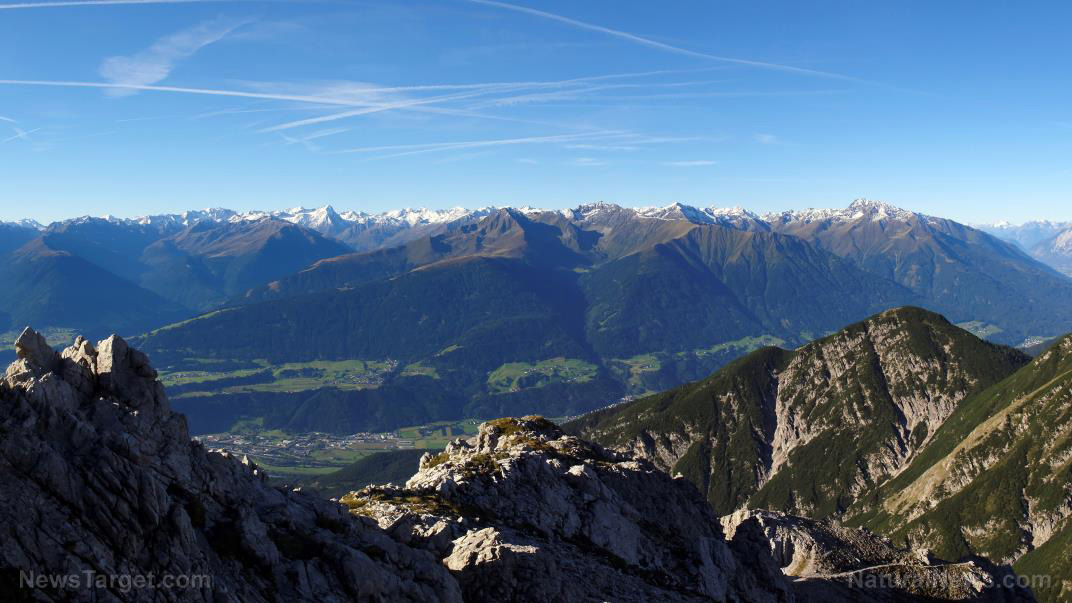Mysterious 4,000-foot coral reef found in middle of Australian desert
09/23/2022 / By Kevin Hughes

Researchers have found a mysterious 4,000-foot coral reef that dates back millions of years in the middle of an Australian desert.
The reef was found in southern Australia’s Nullarbor Plain, which is now a 76,000-square-mile desert composed of limestone bedrock. A tropical ocean washed over it during the Cenozoic era about 14 million years ago.
Researchers from Curtin University‘s School of Earth and Planetary Sciences in Perth said the reef is shaped like a bull’s eye based what they’ve seen on high-resolution satellite imagery. The discovery calls into question the earlier beliefs that the Nullarbor Plain had never had any features.
“Through high-resolution satellite imagery and fieldwork, we have identified the clear remnant of an original seabed structure preserved for millions of years, which is the first of this kind of landform discovered on the Nullarbor Plain,” geologist Milo Barham said in a statement. (Related: Satellite images of striped hills in Russia mystify NASA.)
Modern day Australia has been mostly arid with 18 percent of the country being labeled as desert. But for millions of years, the country was covered in rainforests and water – including the ocean that once immersed the Nullarbor Plain.
The coral reef structure has a circular elevated rim as well as a central dome shape, according to the journal Earth Surface Processes and Landforms. The formation has a width of between 3,950 and 4,250 feet. The journal added that the formation differs from other plain landscapes and cannot be explained by any of the local geological methods.
“The ring-shaped hill cannot be explained by extra-terrestrial impact or any known deformation processes, but preserves original microbial textures and features typically found in the modern Great Barrier Reef,” Barham said.
Nullarbor Plain is a unique geological canvas
The researchers realized that Nullarbor Plain was not the nondescript, featureless landform they presumed it to be.
“Unlike many parts of the world, large areas of the Nullarbor Plain have remained largely unchanged by weathering and erosion processes over millions of years, making it a unique geological canvas recording ancient history in remarkable ways,” Barham said.
“Evidence of the channels of long-vanished rivers, as well as sand dune systems imprinted directly into limestone, preserve an archive of ancient landscapes and even a record of the prevailing winds. And it is not only landscapes. Isolated cave shafts punctuating the Nullarbor Plain preserve mummified remains of Tasmanian tigers and complete skeletons of long-extinct wonders such as Thylacoleo, the marsupial lion.”
Additional research on the geology of the Nullarbor area will help scientists to understand more about the origins of the solar system and the Earth.
“At the surface, due to the relatively stable conditions, the Nullarbor Plain has preserved large quantities of meteorites, allowing us to peer back through time to the origins of our solar system. These features, in conjunction with the millions of years old landscape features we have now identified, effectively make the Nullarbor Plain a land that time forgot and allow a fascinating deeper understanding of Earth’s history,” Barham concluded.
Follow Unexplained.news for more stories like this.
Watch this video about the lost 500-year-old maps showing massive network of rivers in the middle of the Sahara Desert.
This video is from the High Hopes channel on Brighteon.com.
More related stories:
Mystery surrounds “Well of Hell” in eastern Yemen that locals claim is a portal to Hell.
Mysterious red glow in clouds over Atlantic Ocean puzzles pilot.
Ancient “desert glass” turns out to be from a 29-million-year-old meteorite.
Longest erupting supervolcanoes spewed lava for over 30 million years – study.
Sources include:
Submit a correction >>
Tagged Under:
Australia, Australian desert, Cenozoic, coral reef, Curtin University, discoveries, Earth, Great Barrier Reef, limestone, Miocene, Nullarbor Plain, satellite imagery, solar system
This article may contain statements that reflect the opinion of the author
RECENT NEWS & ARTICLES
COPYRIGHT © 2017 ENVIRON NEWS




















